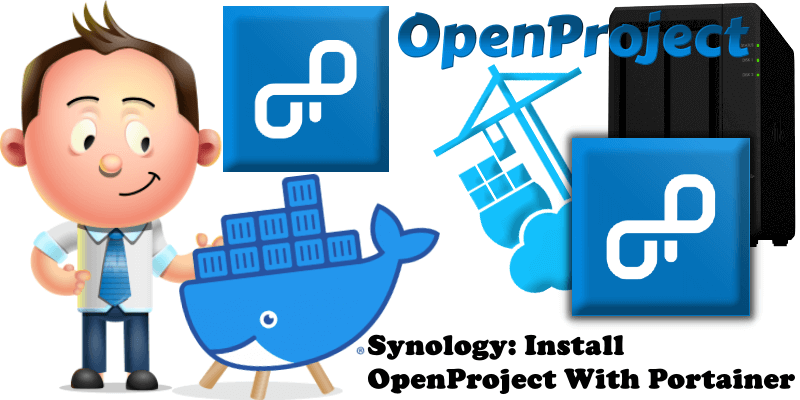
My previous guide for OpenProject involved the use of Task Scheduler. Today I’m offering a great alternative for installing the latest OpenProject version via Portainer. OpenProject is a web-based project management system for location-independent team collaboration. This free open-source application is released under the GNU General Public License Version 3 and is available as a Community Edition and a chargeable Enterprise Edition. In this step by step guide I will show you how to install OpenProject Community Edition on your Synology NAS using Docker & Portainer.
STEP 1
Please Support My work by Making a Donation.
STEP 2
Install Portainer using my step by step guide. If you already have Portainer installed on your Synology NAS, skip this STEP. Attention: Make sure you have installed the latest Portainer version.
STEP 3
Make sure you have a synology.me Wildcard Certificate. Follow my guide to get a Wildcard Certificate. If you already have a synology.me Wildcard certificate, skip this STEP.
STEP 4
Go to Control Panel / Login Portal / Advanced Tab / click Reverse Proxy. Follow the instructions in the image below.
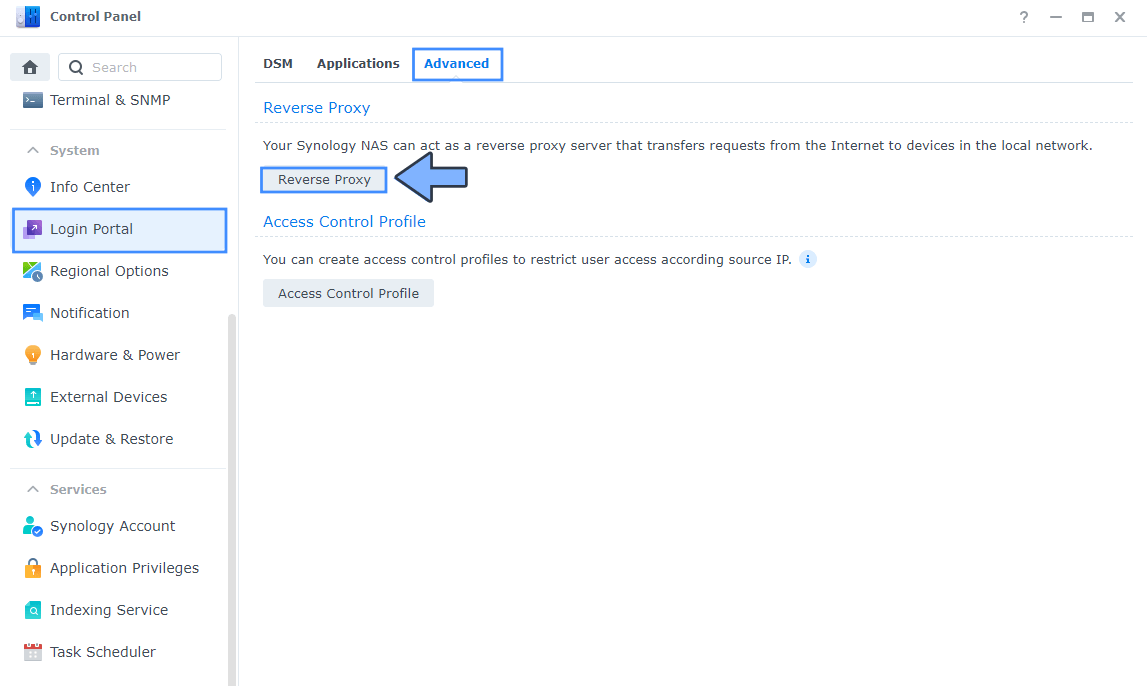
STEP 5
Now click the “Create” button. Follow the instructions in the image below.
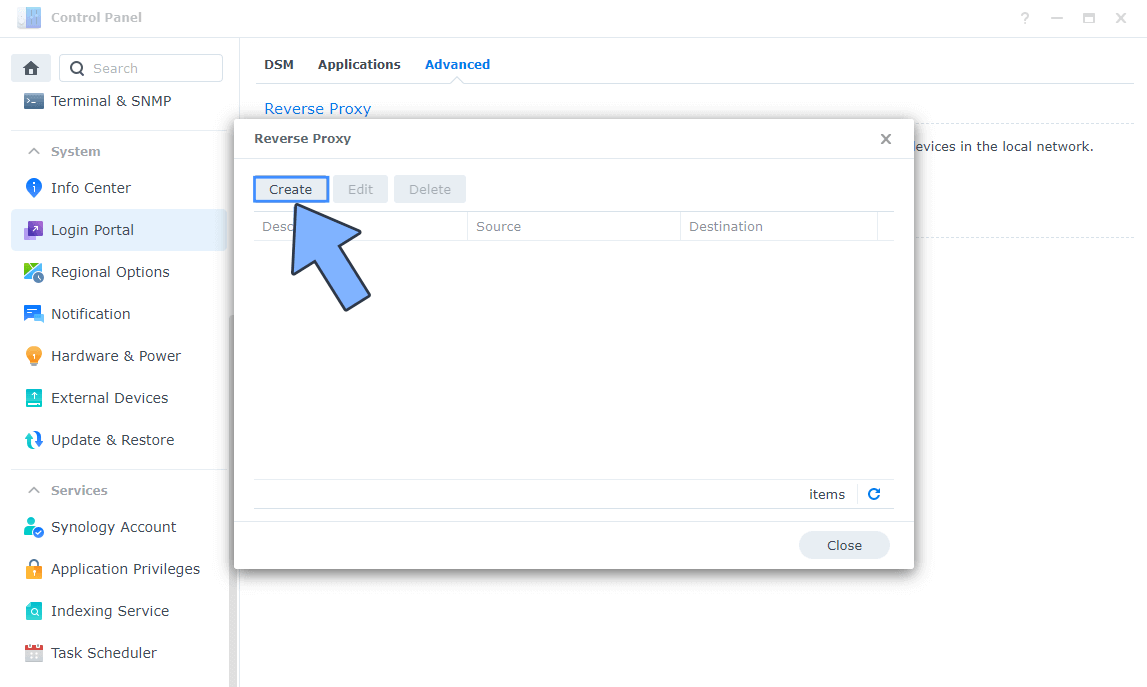
STEP 6
After you click the Create button, the window below will open. Follow the instructions in the image below.
On the General area, set the Reverse Proxy Name description: type in OpenProject. After that, add the following instructions:
Source:
Protocol: HTTPS
Hostname: openproject.yourname.synology.me
Port: 443
Check Enable HSTS
Destination:
Protocol: HTTP
Hostname: localhost
Port: 5123
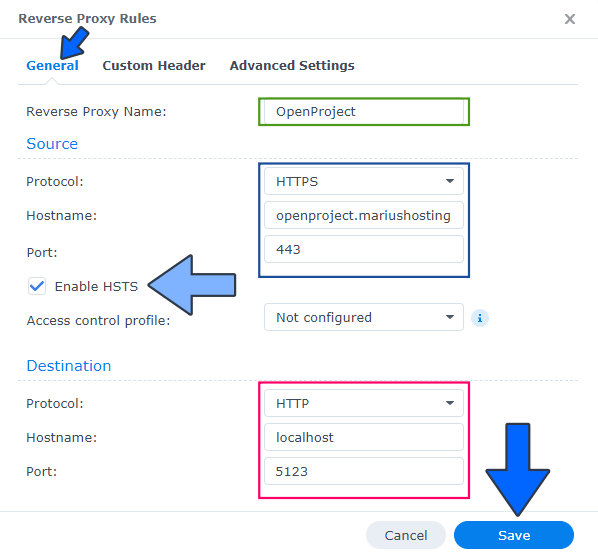
STEP 7
On the Reverse Proxy Rules click the Custom Header tab. Click Create and then, from the drop-down menu, click WebSocket. After you click on WebSocket, two Header Names and two Values will be automatically added. Click Save. Follow the instructions in the image below.

STEP 8
Go to Control Panel / Network / Connectivity tab/ Check Enable HTTP/2 then click Apply. Follow the instructions in the image below.
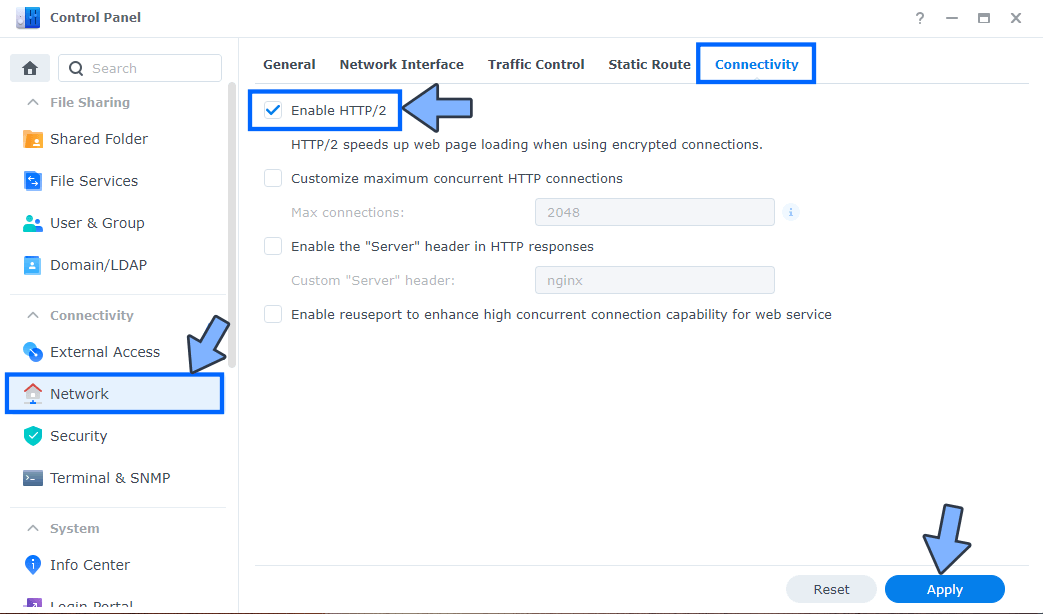
STEP 9
Go to Control Panel / Security / Advanced tab/ Check Enable HTTP Compression then click Apply. Follow the instructions in the image below.
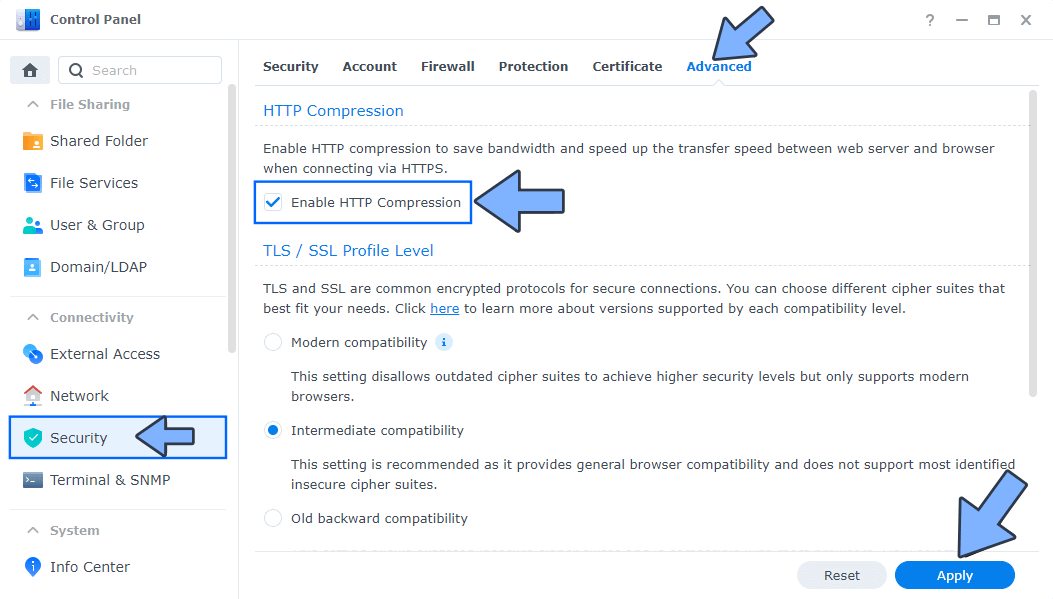
STEP 10
Go to File Station and open the docker folder. Inside the docker folder, create one new folder and name it openproject. Follow the instructions in the image below.
Note: Be careful to enter only lowercase, not uppercase letters.
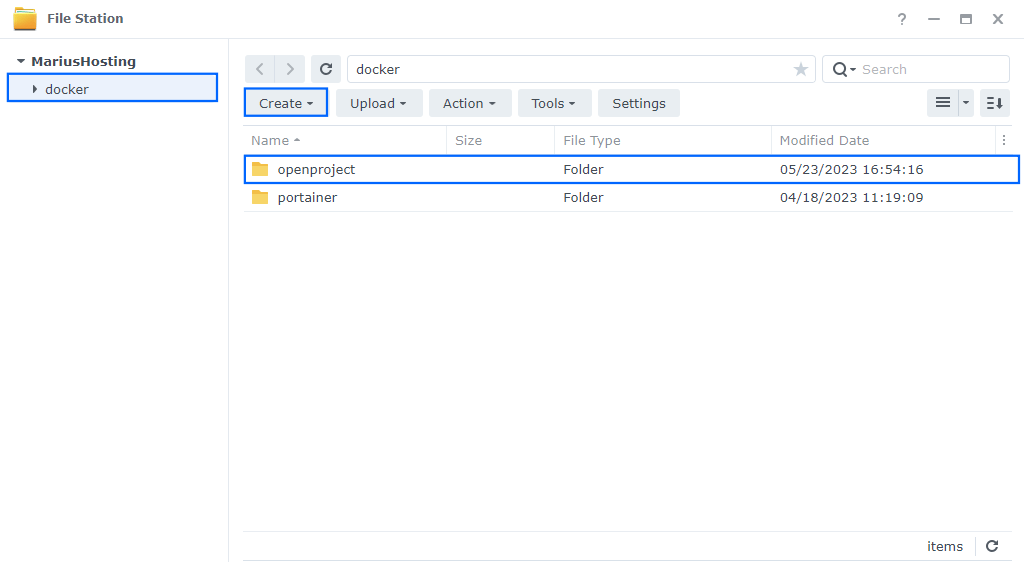
STEP 11
Now create two new folders inside the openproject folder that you have previously created at STEP 10 and name them data and db. Follow the instructions in the image below.
Note: Be careful to enter only lowercase, not uppercase letters.
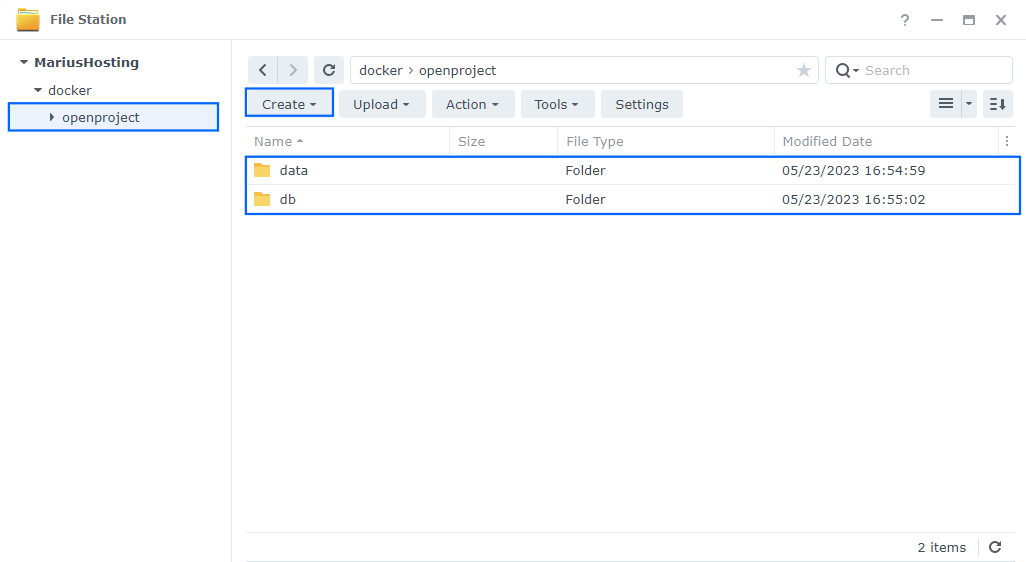
STEP 12
Log into Portainer using your username and password. On the left sidebar in Portainer, click on Home then Live connect. Follow the instructions in the image below.

On the left sidebar in Portainer, click on Stacks then + Add stack. Follow the instructions in the image below.

STEP 13
In the Name field type in openproject. Follow the instructions in the image below.
services:
db:
image: postgres:18
container_name: OpenProject-DB
hostname: openproject-db
security_opt:
- no-new-privileges:true
healthcheck:
test: ["CMD", "pg_isready", "-q", "-d", "openproject", "-U", "openprojectuser"]
timeout: 45s
interval: 10s
retries: 10
volumes:
- /volume1/docker/openproject/db:/var/lib/postgresql:rw
environment:
POSTGRES_DB: openproject
POSTGRES_USER: openprojectuser
POSTGRES_PASSWORD: openprojectpass
stop_grace_period: 3s
restart: on-failure:5
cache:
image: memcached:latest
container_name: OpenProject-CACHE
hostname: cache
security_opt:
- no-new-privileges:true
read_only: false
user: 1026:100
restart: on-failure:5
openproject:
image: openproject/openproject:17
container_name: OpenProject
hostname: openproject
security_opt:
- no-new-privileges:true
healthcheck:
test: ["CMD", "curl", "-f", "http://localhost:80/health_checks/default"]
interval: 10s
timeout: 3s
retries: 3
start_period: 30s
ports:
- 5123:80
environment:
OPENPROJECT_HTTPS: true
OPENPROJECT_HOST__NAME: openproject.yourname.synology.me
SECRET_KEY_BASE: dOxZYTTZgXKMHkqLBIQVImayQXAVWdzGBPuFJKggzcgvgPJPXpWzqzKaUOIOGGIr
OPENPROJECT_HSTS: true
RAILS_CACHE_STORE: memcache
OPENPROJECT_CACHE__MEMCACHE__SERVER: cache:11211
OPENPROJECT_EDITION: bim
OPENPROJECT_RAILS__RELATIVE__URL__ROOT:
DATABASE_URL: postgres://openprojectuser:openprojectpass@openproject-db/openproject
RAILS_MIN_THREADS: 4
RAILS_MAX_THREADS: 16
IMAP_ENABLED: false
volumes:
- /volume1/docker/openproject/data:/var/openproject/pgdata:rw
- /volume1/docker/openproject/data:/var/openproject/assets:rw
restart: on-failure:5
Note: Before you paste the code above in the Web editor area below, change the value numbers for user with your own values. (Follow my step by step guide on how to do this.) 1026 is my personal UID value and 100 is my personal GID value. You have to type in your own values.
Note: Before you paste the code above in the Web editor area below, change the value for OPENPROJECT_HOST__NAME and type in your own synology.me DDNS without https:// at the beginning that you have previously created at STEP 6.
Note: Before you paste the code above in the Web editor area below, change the value for SECRET_KEY_BASE. (Generate your own Random 64 length SECRET_KEY_BASE.)
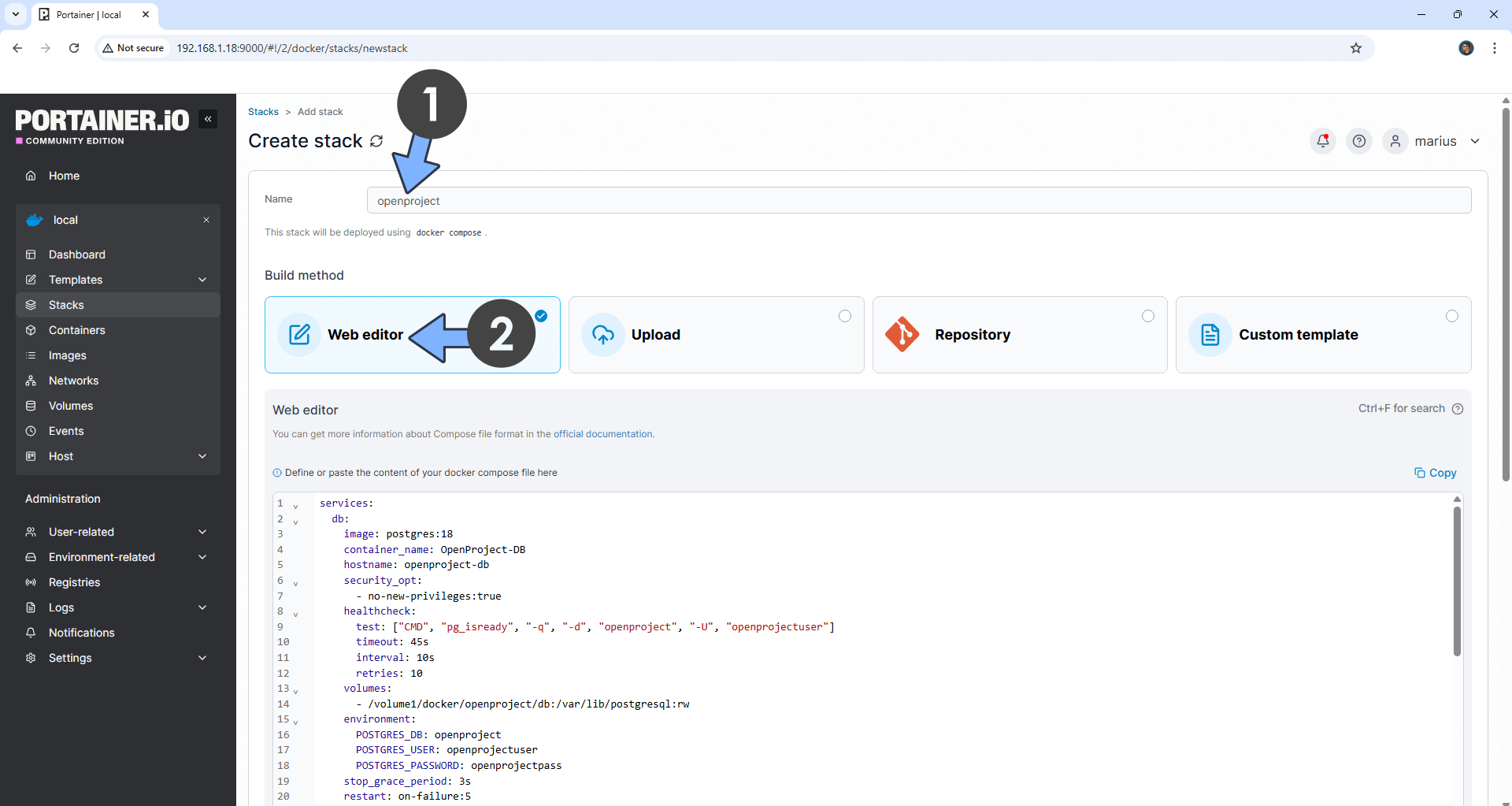
STEP 14
Scroll down on the page until you see a button called Deploy the stack. Click on it. Follow the instructions in the image below. The installation process can take up to a few minutes. It will depend on your Internet speed connection.
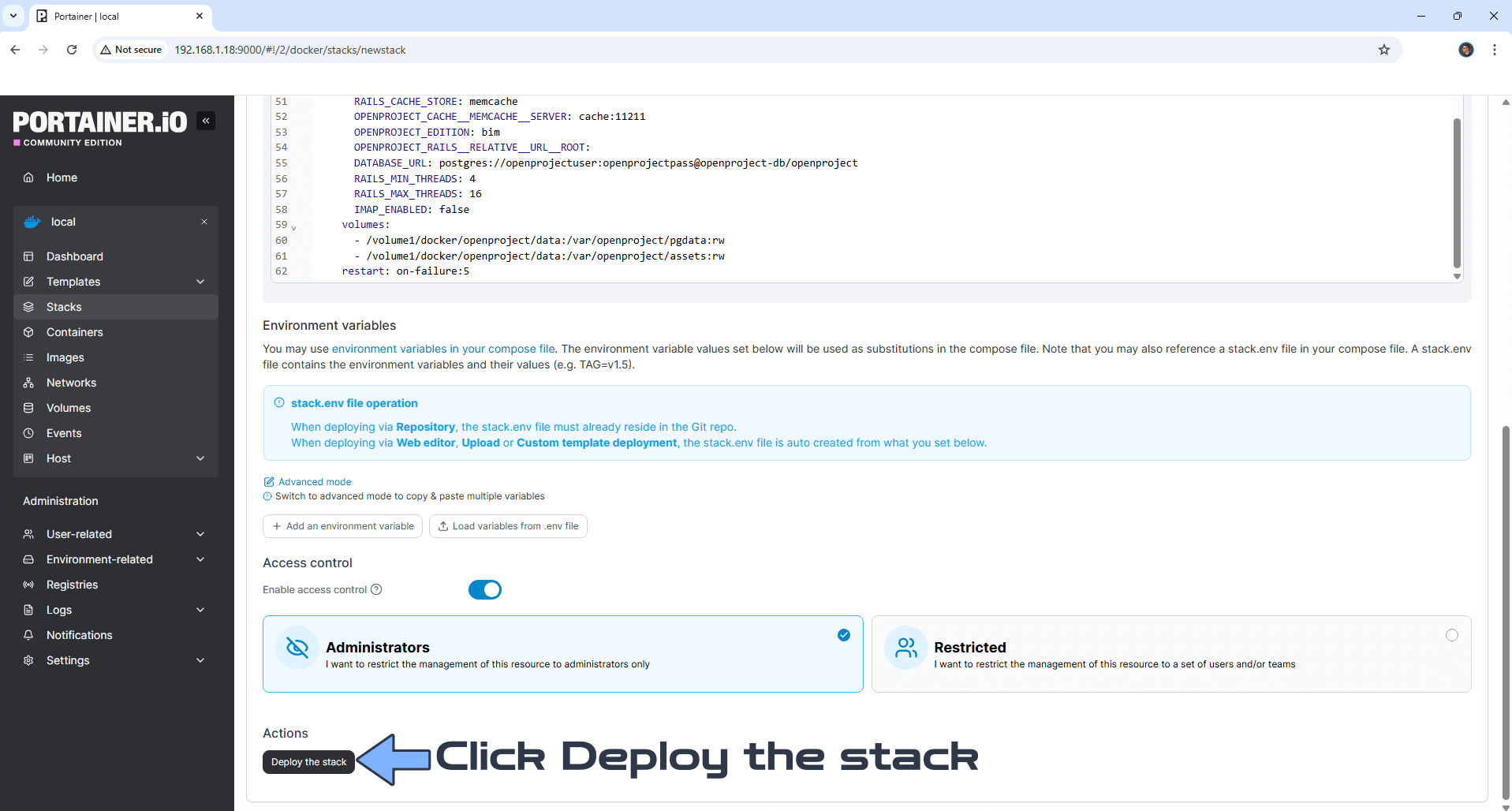
STEP 15
If everything goes right, you will see this message at the top right of your screen: “Success Stack successfully deployed“.

STEP 16
🟢Please Support My work by Making a Donation. Almost 99,9% of the people that install something using my guides forget to support my work, or just ignore STEP 1. I’ve been very honest about this aspect of my work since the beginning: I don’t run any ADS, I don’t require subscriptions, paid or otherwise, I don’t collect IPs, emails, and I don’t have any referral links from Amazon or other merchants. I also don’t have any POP-UPs or COOKIES. I have repeatedly been told over the years how much I have contributed to the community. It’s something I love doing and have been honest about my passion since the beginning. But I also Need The Community to Support me Back to be able to continue doing this work.
STEP 17
Please wait approximately 10 minutes for the installation to be completed or you will get a blank 503 error page if you try to connect too soon. Now open your browser and type in your HTTPS/SSL certificate like this https://openproject.yourname.synology.me In my case it’s https://openproject.mariushosting.synology.me Add admin as Username and admin as Password then click Sign in. Follow the instructions in the image below.
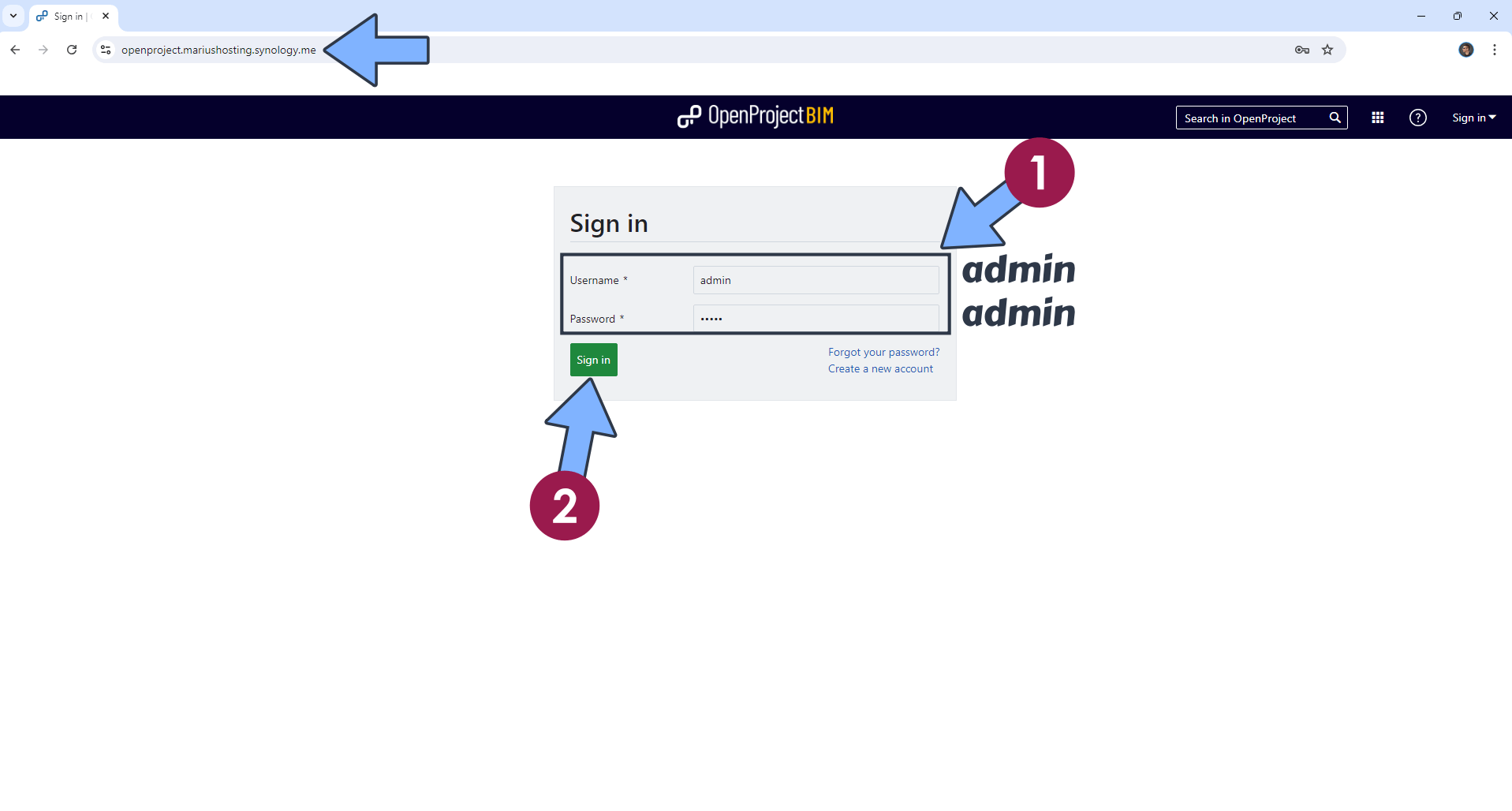
STEP 18
After you click Sign in at STEP 17, you will be prompted to change the password. Add the current admin password then your new password. Click Save. Follow the instructions in the image below.
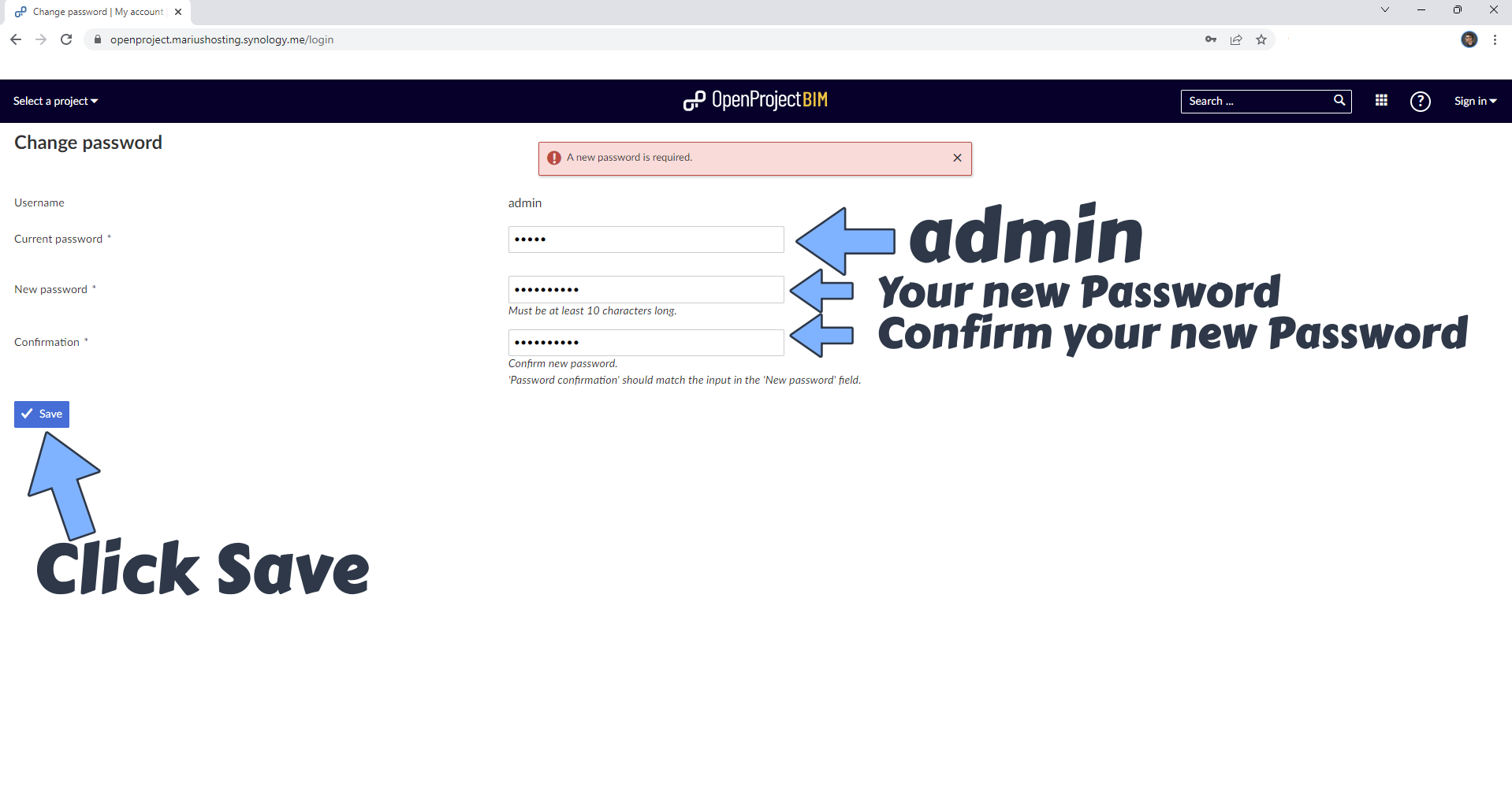
STEP 19
Your OpenProject Dashboard at a glance!
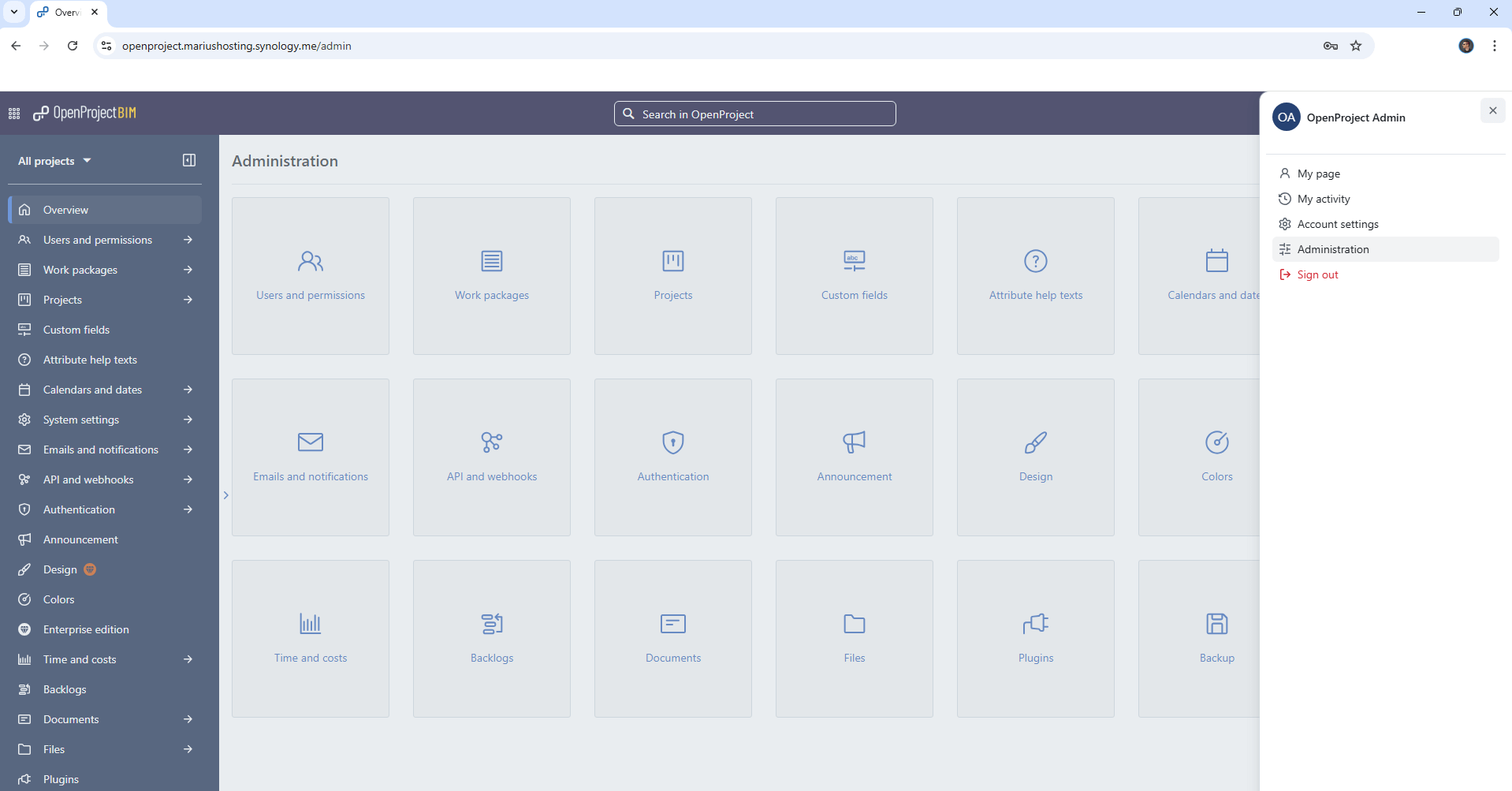
STEP 20
Set Up Email Notifications in OpenProject.
Enjoy OpenProject with Portainer!
If you encounter issues by using this container, make sure to check out the Common Docker issues article.
⚠️Warning: This container require a NAS with AVX support. Check out the Common Docker issues article above.
Note: Can I run Docker on my Synology NAS? See the supported models.
Note: How to Back Up Docker Containers on your Synology NAS.
Note: Find out how to update the OpenProject container with the latest image.
Note: How to Free Disk Space on Your NAS if You Run Docker.
Note: How to Schedule Start & Stop For Docker Containers.
Note: How to Activate Email Notifications.
Note: How to Add Access Control Profile on Your NAS.
Note: How to Change Docker Containers Restart Policy.
Note: How to Use Docker Containers With VPN.
Note: Convert Docker Run Into Docker Compose.
Note: How to Clean Docker.
Note: How to Clean Docker Automatically.
Note: Best Practices When Using Docker and DDNS.
Note: Some Docker Containers Need WebSocket.
Note: Find out the Best NAS Models For Docker.
Note: Activate Gmail SMTP For Docker Containers.
This post was updated on Sunday / February 22nd, 2026 at 1:55 PM
